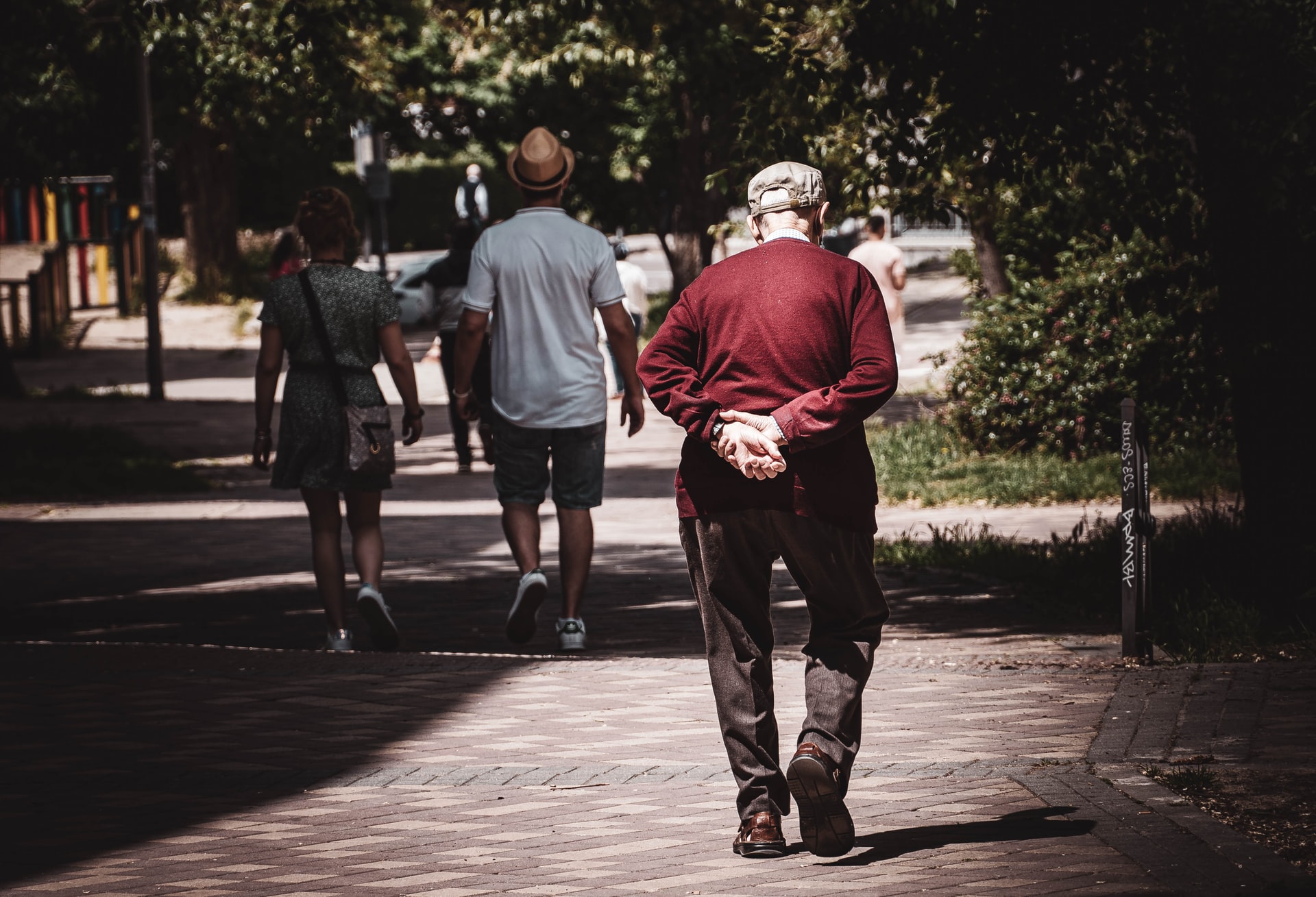
The demand for the rights of the elderly is at its peak, in the face of the violations suffered as a result of the Covid-19 pandemic. It is necessary that their rights and autonomy are recognized and that they escape from the only protectionist zeal.
A declaration of principles and intentions is essential. This is what we know as a manifesto, a document in which a person, government or organisation sets out, in general terms, their intentions, motivations or points of view. A maximum programme.
In a short text, such as this blog, I will try to put forward a statement of these characteristics and regarding the driving principles that, in my opinion, should guide the Silver Economy:
-
Talking about ageing is talking about something positive. It is a historic achievement of humanity. Living longer, better, with a higher quality of life.
To insinuate, project, denote when communicating that ageing is a burden means preferring that it did not exist, ergo that we died earlier. Business communication must project and communicate that ageing is, in itself, positive, because the alternatives are worse. Always.
It must be repeated to the point of aphonia that maturity is the fullness of life and, if it accompanies health, as it usually does, until the eighties, it is possible to enjoy what has been achieved. If youth was the "I hope that", maturity, being older, is when we say "here and now". Enjoy for the sake of enjoying. Seeking happiness and satisfaction with one's life: it is a success to have reached this point, and it is a success to enjoy the pending path; that is what active aging consists of. And this must be a Silver Economy mantra.
-
Everyone has the right to dignified ageing. Everyone deserves respect. If, in addition to being a person, you deserve the adjective "older", even more so. Baggage, history, heritage and heritage. The age of a person in his or her maturity is important. All this makes the person worthy of respect and recognition, of help and affection, precisely when, sometimes, with luck, one reaches a moment when the body is not what it was and is needed, in fragility, help and support, care and caresses.
-
There are no old men or women. Maybe it is an abuse of politically correct language, of which we are (or I am) so tired, but the truth is that oldness is associated with a physical or psychic decadence that many times, happily, does not accompany the biological fact of being very old. Without falling into kitsch ("older adults", in my opinion it's kitschy and redundant, for example, condescending), we must avoid indicating a cause-and-effect relationship between being older and useless or about to be so. This is not the case, because precisely in Silver Economy we work with the idea that the elderly are useful and usable, precisely as a result of seniority, trained common sense and the life-giving rucksack of resources.
-
There is no seniority segment. I struggle with copper every day to convince myself, without success, that it is a mistake to talk about "silver segment" or "senior segment". There are rich seniors, and poor seniors. Travellers and sedentary people. Who enjoy one or more glasses of good wine and are teetotalers. There are sixty-year-olds and centenarians. The Silver Economy tells us that we must focus on these (note the plural) segments and groups, but it is not a single segment. Age, for better or worse, is not the same. Although in different campaigns and moments of economic and/or business management, the lowest common denominator can be sought.
-
Earning money by caring for the elderly is positive. It will be necessary to positivize that it is ethical to make money helping people when they need it. They will say, blaming, "they make money taking care of the elderly, what a shame". No shame: it is dignified to help others, it is dignified to give (sell) others what they need and it is dignified to make a living and to earn money by doing things right, improving the quality of life of older people and their families. Giving shelter, peace of mind, managing trust and dignifying the management of fragility dependent on those who have been lucky enough to reach the very old.
The social impact of the economic activity in Silver Economy should make us feel a logical pride.
-
Life is time. How old are you? Deep down, talking about Silver Economy is talking about time. It is an economy associated with time. We are used to answering the question "how old are you" by looking back.
At Silver Economy we know that there is an uncertain time in life, which will come for each person according to his or her circumstances. That question should be answered: I don't know, the ones I have left to live, which I hope will be full, as far as possible. This is the basis of active and positive aging. The here and now that we were talking about before. Who knows how old he is, who knows what he has left to do?
In Silver Economy there is, in general (even in the less cool or glamorous part of selling care or managing dependency, let's say) a positive view that indicates that we all need to take advantage of the uncertain time we have left.
-
The importance of planning. Living longer requires planning how to age. Without becoming obsessed, because the future does not exist, it is uncertain, we must plan scenarios.
When someone retired in the 1980s, they had an average of about ten years ahead of them. Today there are more than 20. With pensions that will decrease due to longevity and the investment of the population pyramid. In the new life of nearly one hundred years, it is necessary to plan, not only at the level of assets, but in all areas: housing, care, family. Plan. Plan. Organise the plan in advance to develop a longer life as fully as possible, so that there are no economic shocks, nor in any order.
The pension system has an uncertain future. Although we have our pension insured (in Spain, in Portugal, without a doubt, but with uncertain nuances and forecasts), it is necessary to plan for the financial future. In the same way that it is necessary to plan scenarios regarding the health and care system, with health insurance and/or dependency insurance, because, if there is luck, we will need various aids in recent years.
-
People who care for people with the help of technology. Future social development hangs in the balance: productivity growth through technology. It must enable cheaper goods and services to be produced so that impoverished consumers in an ageing, dual society can afford them.
The loneliness, the fragility of the body, the associated telemedicine and so many other effects of ageing will be mitigated with the right technology. If there is no technology, social assistance will be poetry, an impossibility. Telematics. Domotics. Big Data. Virtual realities, real, digital realities. And physics. All of them, balanced, are necessary to give the best to people when they are more fragile.
As we have explained in other articles, the future of society and, of course, of the Silver Economy depends on:
-
Home automation: intelligent homes for people who want to live at home for as long as possible, right to the end if possible.
-
Big data: it will be an ally to live better, because it will allow to predict and foresee health events and manage social and health services. Artificial intelligence will help in managing care in a personalised way.
-
Telemedicine is today an incipient reality on the verge of hatching.
-
Red-button tele-assistance is a thing of the past, and powerful solutions to loneliness, assistants and robots will help the carer to give the care that the elderly need.
-
The Silver Economy should promote a person-based, individual-centred economic relationship, as I will elaborate in my next article in this blog. It must allow you to make money, as I said, because it offers a service that gives the recipient more than they need.
-
The model of attention and relationship with the major client is characterized by the following key points:
-
It has to be proactive, to develop initiatives and capacities to anticipate future problems or needs through technology, as I said in the previous point.
-
It has to be preventive. Anticipate probable dangers or ills by using statistics to focus on the needs of the elderly in order to offer products and services appropriate to specific needs.
-
It has to be ubiquitous and omnicanal. Increasingly, the elderly and their families require services that are physical, but also digital, and that provide comfort, facilities, pleasure when possible and enjoyment of services on all types of screens, as well as physical contact based on affection, tenderness that we all need and positive reinforcement.
-
It has to be social: loneliness is another pandemic. Loneliness needs to be addressed, faced, confronted and I cannot finish this manifesto without proclaiming the centrality of the fight against loneliness and isolation (in these times of confinement, technology will be a help) with all kinds of tools, technologies and ways of working. We are social from birth until we leave, and it is fundamental to see socialisation as an essential part of the human being, especially when we are older.
By focusing on dignity and ethics, we will be more successful in our Silver projects. It is necessary to focus on the love that all clients need. Also when they are or we are older; maybe more (if there is fragility), never less.


